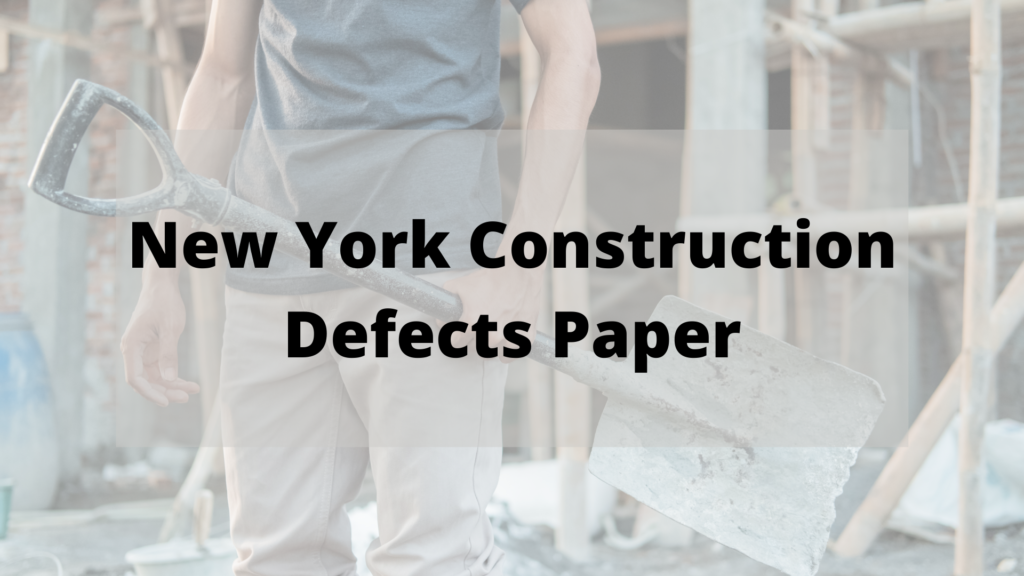
Defective construction exists throughout all construction projects, and it is likely no construction project is ever completed perfectly. In New York construction, however, perfection is not the legal standard work is required to achieve.
Issues relating to defective construction make for complex litigation and arbitrations, and correcting defective construction can come with a large price tag.
This complimentary paper provides a generalized introduction to this area of law, as well as examinations of design based defects, construction based defects, improperly used materials, improperly installed materials, and a discussion of some of the time limitations imposed on bringing a New York construction defect action.

The author,
John Caravella Esq., is a construction attorney and formerly practicing project architect at
The Law Office of John Caravella, P.C., representing architects, engineers, contractors, subcontractors, and owners in all phases of contract preparation, litigation, and arbitration across New York and Florida. He also serves as an arbitrator to the American Arbitration Association Construction Industry Panel. Mr. Caravella can be reached by email:
John@LIConstructionLaw.com or (631) 608-1346 or (954) 271-6053.
The information provided on this website does not, and is not intended to, constitute legal advice; instead, all information, content, and materials available on this site are for general informational purposes only. Readers of this website should contact their attorney to obtain advice with respect to any particular legal matter. No reader, user, or browser of this site should act or refrain from acting on the basis of information on this site without first seeking legal advice from counsel in the relevant jurisdiction. Only your individual attorney can provide assurances that the information contained herein – and your interpretation of it – is applicable or appropriate to your particular situation. Use of, and access to, this website or any of the links or resources contained within the site do not create an attorney-client relationship between the reader, user, or browser and website authors, contributors, contributing law firms, or committee members and their respective employers.
![]()


